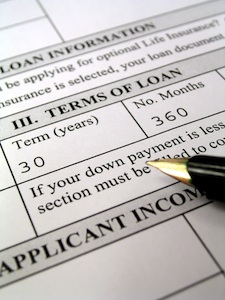Private mortgage insurance (PMI) is an insurance policy required by a lender that a borrower must purchase if the borrower has less than 20 percent or more in down payment when purchasing a home. The lender is in a safe position against default when the lender’s investment is 80 percent or less of the home value. Private mortgage insurance is included in the monthly mortgage payments.
How does the borrower benefit from private mortgage insurance?
Borrowers who have less than a 20 percent down payment for a conventional mortgage loan or do not meet the income requirements have an opportunity to be a homeowner by paying private mortgage insurance. A new borrower is allowed to own a home and at the same time build equity and also enjoy tax deductions on interest and property taxes. PMI helps the borrower to enjoy the benefits of home ownership years before he is able to save the 20 percent down payment required by mortgage lenders.
What is the downside to private mortgage insurance for the borrower?
There are several reasons why private mortgage insurance is not the best way to go for the borrower:
 • The borrower may end up paying more for PMI than a 20 percent down payment because he gets stuck with paying the PMI longer than anticipated. The Homeowners Protection Act states that the borrower can request that the PMI be discontinued when he has 20 percent equity in the home. If housing values decline as they have in the current economy then it will take longer to reach the 20 percent equity level.
• The borrower may end up paying more for PMI than a 20 percent down payment because he gets stuck with paying the PMI longer than anticipated. The Homeowners Protection Act states that the borrower can request that the PMI be discontinued when he has 20 percent equity in the home. If housing values decline as they have in the current economy then it will take longer to reach the 20 percent equity level.
• The Homeowners Protection Act also states that PMI is discontinued automatically when the borrower has reached the 78 percent level of equity. This does not always happen automatically and the borrower must know when he has reached this level. In fact, the borrower should know when he has reached the 20 percent equity level in order to save 2 percent of PMI.
• PMI does not act as a life insurance policy. If the borrower becomes disabled or dies his family members receive no benefits from private mortgage insurance. PMI must be paid until the property reaches the 20 percent of equity in the home.
• It is to the borrower’s advantage to get rid of PMI as soon as possible to reduce his mortgage payments. It is possible to pay as much as $75.00 per month for PMI on a $100,000 mortgage.
How to determine if there is 20 percent equity in the home.
Paying off 20 percent of the loan and having 20 percent equity in the home is not the same thing. Equity is determined by the value of your home and can increase because market values have increased or because of home improvements. The homeowner must first determine the market value of his home through a certified appraisal.
A quick call to a friend in real estate can tell you the price of homes recently sold in your area that are comparable to your home before deciding to get an appraisal.
I think the 20% down payment, to avoid PMI, is the way to go. We just have to wait and save to get the 20% down payment. Many folks become so anxious to buy a home that they don’t think about paying the extra insurance in the long run.
The problem I see is that the lenders don’t give you a choice. However, consumers do have a choice and that is to wait, save, and come up with the 20%.
These days, lenders really want to see that 20% minimum downpayment. You have a better shot at a mortgage if you can put down the 20%.
I think a 20% down payment is the minimum to get into a house. Anything less puts undue pressure on the homeowner. Mortgages and home prices are record lows, a 20% down payment is very reasonable.
Prices are low and if you can put down more than 20%, even better.